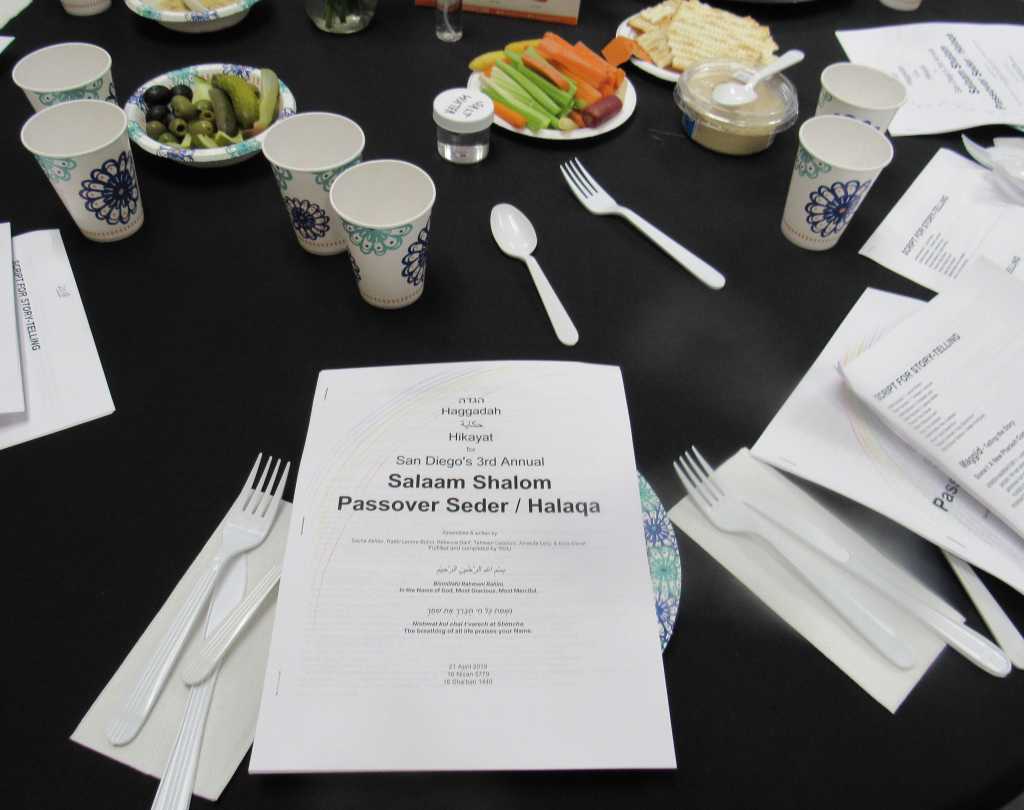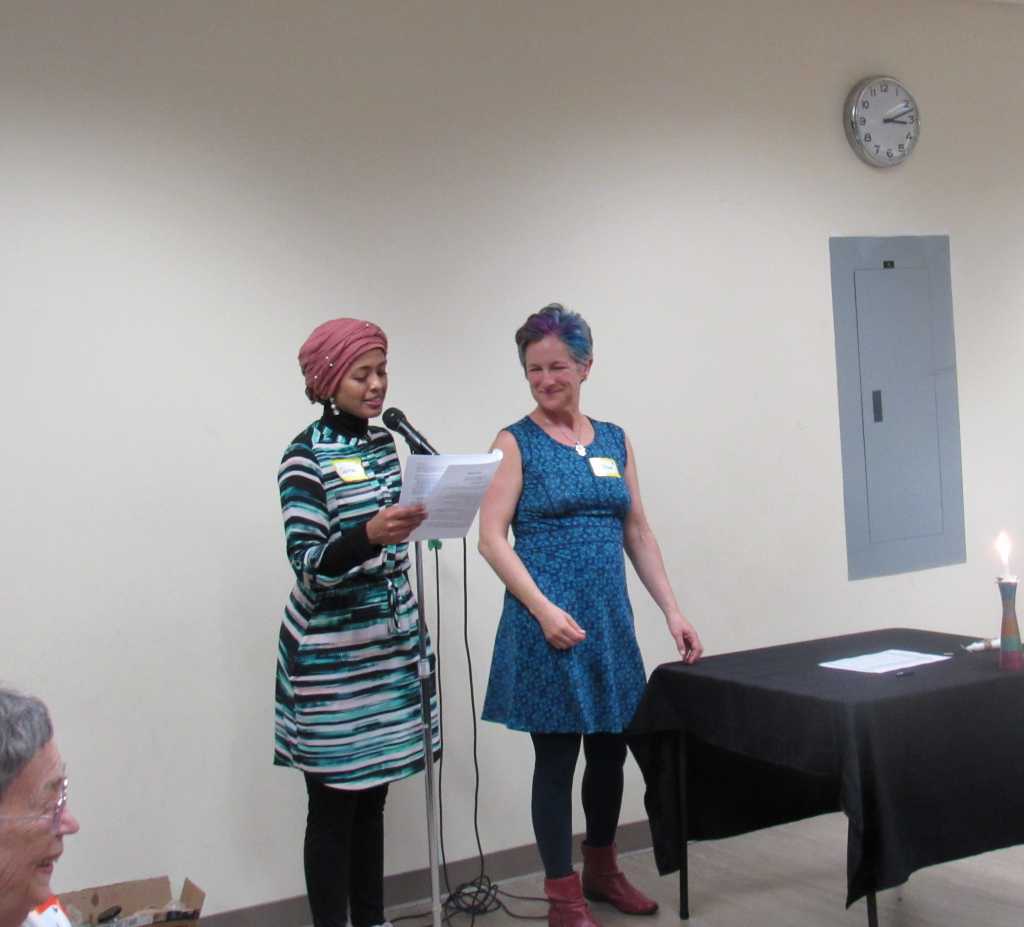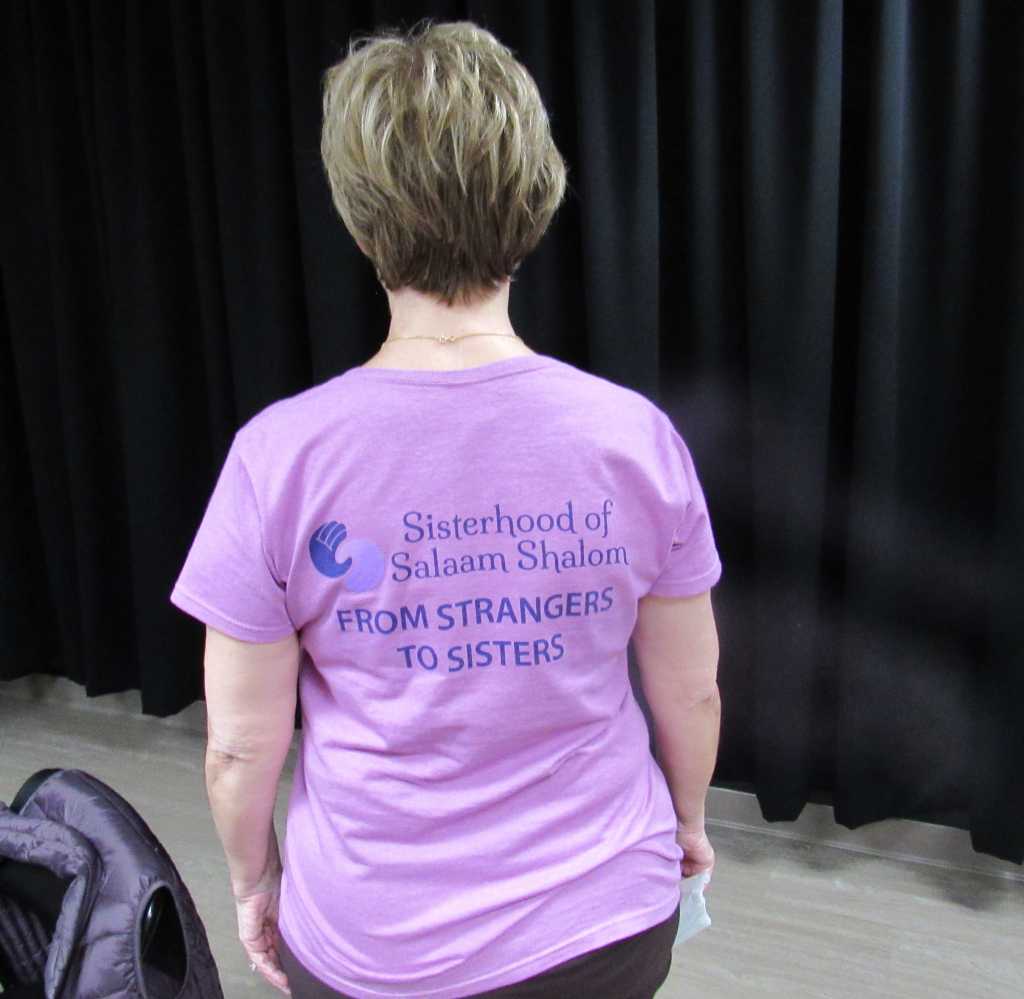
Whenever I hear of an organization whose purpose is to build bridges of communication, I want to find out more. I was invited to attend the Sunday Seder of the San Diego chapter of the Sisterhood of Salaam Shalom, an organization of Muslim and Jewish women, which was held at the JCC. It proved to be a positive experience.
The national Sisterhood of Salaam Shalom was co-founded in 2010 by Sheryl Olitzky after she returned from a trip to Poland that had a profound effect on her. Together with Atiya Aftab, Olitzky decided to form a group that would fight hate and negative stereotypes and promote a better understanding between Jewish and Muslim women. Today there are over 165 chapters with about 3,000 members and a total reach of about 7,000 Jewish and Muslim women. Their philosophy has resonated with many and more to come.
Here in San Diego, one of the leaders of the local chapter is Eliza Slavet. When asked what motivated her to begin the San Diego chapter, this is what she replied. “The day after the 2016 election, I woke up to the fact that I needed to do something to respond to the political divides/hatreds. While I support local, national, and international organizations, I wanted to do something that would make use of my past interests/work in academia— Jewish Studies, Religious Studies, etc.— so I began looking for ways to get involved with interfaith activism/community-building in San Diego. I also wanted to commiserate with my Muslim friends, but quickly realized that I did not really have (m)any such friends. Meanwhile, I stumbled across the website for the Sisterhood of Salaam Shalom and looked for local versions but did not find any. On a whim, I set up a Facebook group and called it “Muslim and Jewish Sisterhood of San Diego” (or something like that) and began adding friends who I thought might be interested, including a few secular Muslim friends/acquaintances. I started to attend events at the Islamic Center of San Diego— both to learn about what sorts of actions were already in process and to connect with Muslims as friends/neighbors. As I met people along the way, I made little flyers and handed them to people at the grocery store, at the gym, at the Islamic Center and beyond.”

Slavet is a good person to lead the local chapter as she has her PhD in Literature from UCSD and is currently studying to be a rabbi. She wrote a book called, Racial Fever: Freud and the Jewish Question (Fordham University Press, 2009). She decided to study to become a rabbi when she realized that she was limited in her own understanding of Judaism. As she says, “I realized that I felt very limited in my own understanding/practice of Judaism from the inside out. I had studied Judaism mostly from “the outside looking in”— in other words, I studied ABOUT Judaism/Jewish history rather than studying Jewish traditions/texts from the perspective of an active participant.” In December 2016, her friend/mentor, Rabbi Phil Graubart encouraged her to consider rabbinic school, and the rest is history.
 Her background has served her well and as she is also gregarious and fun, with a good sense of humor, she can thus answer the many questions posed to her with ease and grace. With help from her daughter, some props, and both Jewish and Muslim friends, she led the Seder on Sunday in an entertaining yet educational way.
Her background has served her well and as she is also gregarious and fun, with a good sense of humor, she can thus answer the many questions posed to her with ease and grace. With help from her daughter, some props, and both Jewish and Muslim friends, she led the Seder on Sunday in an entertaining yet educational way.
When the San Diego sisterhood first formed, there were more Jewish than Muslim women who were interested in joining the group, but as more Muslim women came aboard, that changed. Today Slavet’s Muslim counterpart is a lovely woman named Saima Akhter. Akhter became motivated to join after long conversations with Slavet and attending a Seder at her home. There are also other women who are very involved, including Tesheen Lazzouni, Rebecca Darif, Rabbi Lenore Bohm, Amanda levy, Shari Ciancio, and Ros Goldstein.

There were about 50 women at the Seder I attended with an even distribution of both Jewish and Muslim women. Amanda Levy played guitar and sang. It was also an international affair as there were women from several different countries, including Ukraine, Afghanistan, Morocco, Syria, Somalia, India, and Pakistan. In fact, one of the nicest and wisest women I spoke to was a Muslim woman from Pakistan named, Shay, who felt there was no place for hatred in this world and an open dialogue, facilitated by this organization, would help combat that. As I observed several tables of women joining together in conversation and mutual understanding, it gave me hope that barriers can be broken down.

























